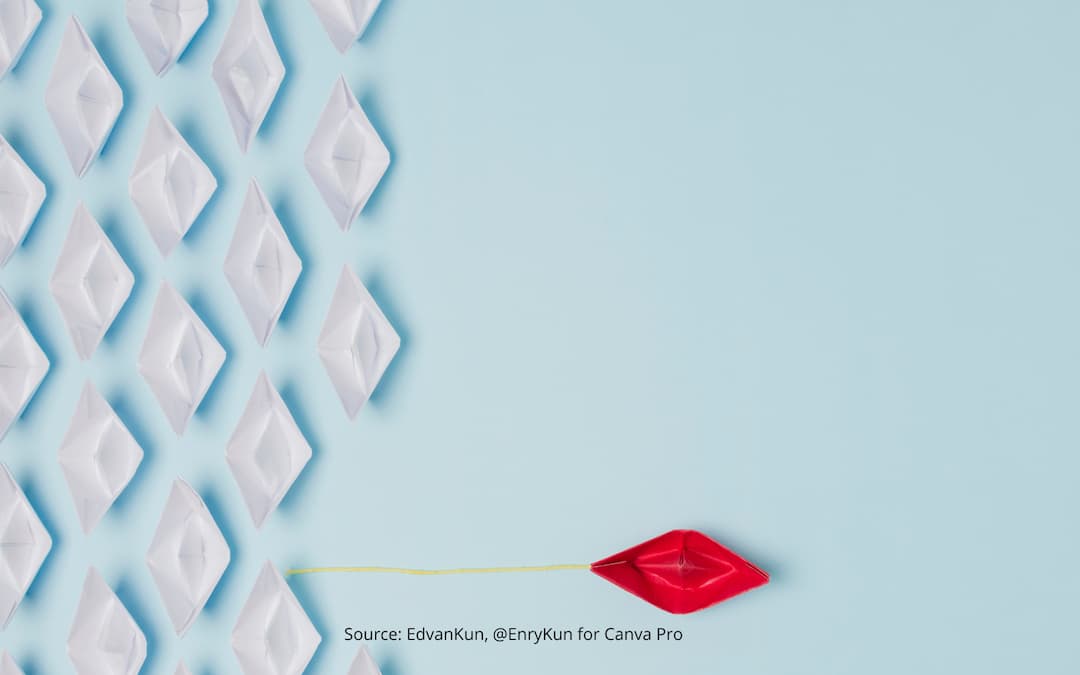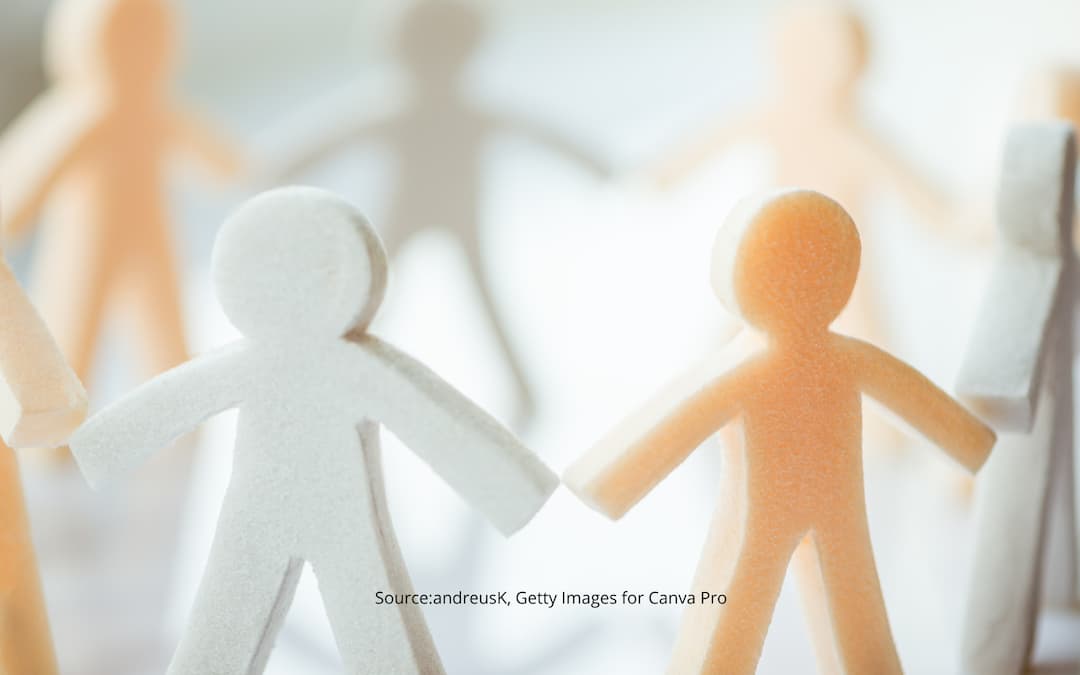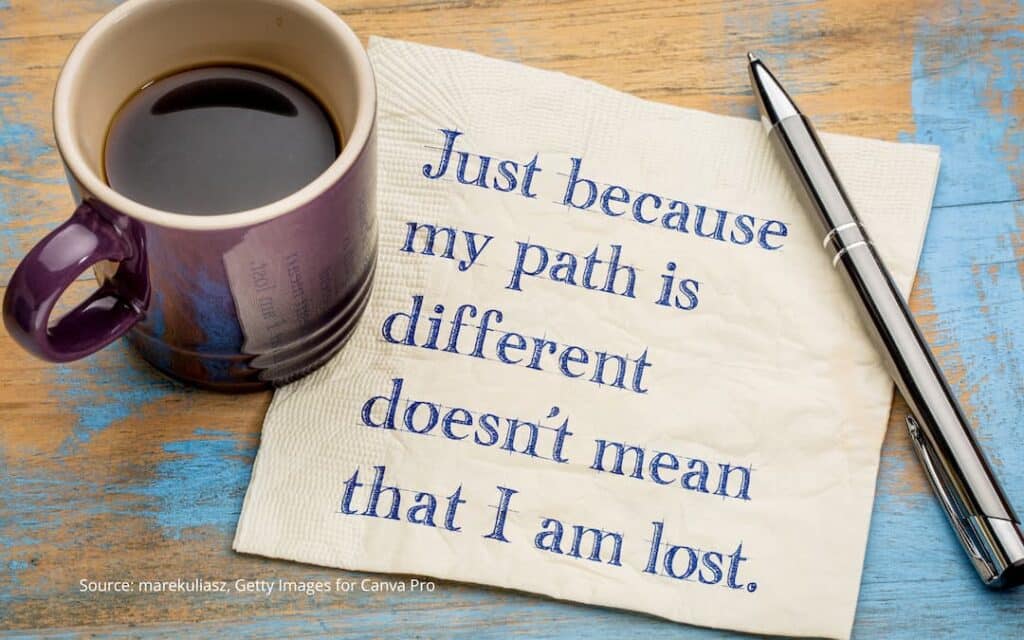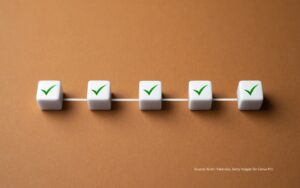Every single one of us has experienced cultural conditioning. It doesn’t matter where you’re from, cultural conditioning is a normal adaptation process that helps us coexist. And it starts the moment you’re born.
In my work as a transformational coach and consultant, I’ve noticed that culturally conditioned beliefs are a powerful driver of our behavior. But, in a world where travel, relocation, and global interactions are now the norm, we cannot assume that the perspectives and behaviors we’re accustomed to are right for every situation or environment. Therefore, we must become aware of our conditioning and how it affects us so we can decide what works, what doesn’t, and how we want to use that information when making decisions about our lives. So let’s explore cultural conditioning, its effects, and what we can do about it.
What is Cultural Conditioning?
Cultural conditioning is a process through which we absorb and interpret the influences, norms, and messaging from our environment and translate them into what we believe to be acceptable behaviors.
Each of us operates within an environment that consists of many types of cultures and subcultures, some of which overlap. This is why siblings can grow up in the same household and share many of the same experiences, yet enter the world as adults with completely different perspectives. Each person absorbs the cultures around them through a different lens and interprets them in their own way.
I’ll bet you can think of many unique cultures within your own environment. Our exposure to these cultures results in a set of messages that we internalize and carry with us as we move about the world. Messages that influence our beliefs about what’s normal, acceptable, or even enjoyable. These beliefs become central to who we are and ultimately shape our behavior, reactions, and judgements about how we and others fit within society.
Consider, for a moment, how the following cultures have influenced you:

Regional Cultures
Certain norms and values are common across entire countries. Individual cities, burrows, and/or neighborhoods, however, often adopt a nuanced set of cultural beliefs.
Organizational Cultures
Families, educational institutes, workplaces, and governments definitely influence how we perceive ourselves in the world. More specifically, the authority figures (parents, professors, politicians, etc.) within these organizations shape our cultural values, beliefs, ethical, and moral norms.
Peer Groups
These include not just our friends and/or coworkers, but people with common gender identities, political interests, hobbies, medical conditions, sexual preferences, familial challenges, etc. who become a part of our life.
Spiritual and Religious Institutions
Whether you subscribe to a faith or not, spiritual and religious leaders influence our moral and ethical systems and ultimately our reactions and behaviors.
Socioeconomic Cultures
Your position in society and how your peers and the media react to it mold the lens through which you view the world.
The Media
Media is the ultimate cultural conditioner. Moreover, certain types of media define our culture and act as an amplifier.
And, this is just a start. There’s no limit to the variety of cultures that can affect our lives.
Cultural Conditioning vs Social Conditioning

It’s important to note that the terms “cultural conditioning” and “social conditioning” are often used interchangeably. However, although these terms are related they are not the same. Culture is about the traditions and values we establish over time. It’s why you might find yourself doing something a certain way every time, simply because that’s how it’s “always” done. Whereas social conditioning is largely value neutral and transient. We may follow the latest trends, for instance, not because we assign value to them but because we want to fit in with today’s norms.
Culture and society both influence our behavior. But while culture is deeply embedded in our psyche and is often imperceptible to us, the effects of society are more transparent.
This is why cultural conditioning is sometimes viewed in a negative light. When we’re unaware of it, cultural conditioning can act as a formidable force against our ability to evolve. The beliefs and behaviors we’ve accepted as the norm give us a sense of comfort and control. So when changes occur in the world or among the influences in our life, they can challenge our cultural beliefs and make us uneasy to the point where we must make a decision. We can either accept the new norms and adapt to our environment, or we can dig in and resist because the new norms feel wrong or even threaten us in some way.
How Does Cultural Conditioning Impact Our Lives?
Although cultural conditioning can show up at any time and affect all areas of our life, it is particularly noticeable when we’re experiencing a change of some sort. Change can be unnerving, even when it’s desirable, because it forces us to confront our underlying beliefs about who we are.
Career decisions, for example, are an inflection point for many people. Including me.
A Story About Cultural Conditioning

My father was a World War II survivor. He grew up in an impoverished environment and experienced the loss of siblings as a result of the war. For him, professional choices were about survival. He sacrificed himself to care for his parents and kids. The only criteria he used for choosing work was whether or not his paycheck would be enough to feed his family.
This translated into my cultural conditioning in that I received, absorbed, and interpreted his guidance to mean “always be safe in what you do.” This meant I was to go to a good school, work for a good company (forever), and retire with a pension.
So, that’s what I did. I didn’t even consider possibilities that went against this mold until I’d achieved everything I had hoped to achieve. At which point, I began to wonder. Is this it? Have these accomplishments been the entire purpose of my life? Or, is it possible that there’s something more?
It was uncomfortable. Entertaining these questions went against my cultural conditioning, which was all about survival with absolutely no room for following my passions.
That doesn’t mean my father’s viewpoint was wrong. It was very real and relevant to him at that time. But the cultural conditioning I received didn’t translate into my environment. If all goes well, I could live until I’m nearly 100 years old. I will face a different set of challenges, but I had the luxury of experiencing a quarter-life (ok, mid-life) crisis and deciding for myself what I wanted to do with the next chapter. The answer was that I wanted to give back to the world, so I went into coaching.
Ironically, I now see this challenge coming up for my clients all the time. Their cultural conditioning tells them they should act and feel one way, but they feel that there’s something wrong. These clients rarely come to me asking about culture. Instead, they’re uneasy because despite achieving what they set out to achieve, they worry that they’ve lost touch with their life’s purpose.

How to Mitigate the Effects of Cultural Conditioning
People often ask how to avoid cultural conditioning, as if it were a disease for which we need a vaccine. But, remember, cultural conditioning is an inevitable, arguably necessary human adaptation that helps us become functioning members of society. So it’s not about avoiding cultural conditioning. It’s about building your awareness of it so you begin to notice your judgments and examine them before reacting to unfamiliar situations.

This is a new skill for many of us. It used to be normal to live in one place your entire life, so there was less exposure to different cultures. In today’s world, however, we may have several careers, travel around the world, enjoy a range of interests, and find ourselves in unfamiliar territory on a regular basis. We’re also more connected than we’ve ever been and constantly bombarded with cues from online sources that can conflict with the signals we receive in real life. We must learn how to challenge our cultural beliefs and evolve or risk extinction.
So, what can you do? Here are the basic steps:
1. Build Your Awareness
Take note of the situations that trigger you. Cultural conditioning can show up in many ways. But it often becomes a problem when change occurs and new influences enter your life. When you find yourself becoming uncomfortable and judging a situation based on a pre-existing belief, acknowledge that there is a problem then ask yourself the following questions:
- How did I come to believe this?
- When was the first time I felt this way?
- Is this belief still true?
- Who came up with this belief.
2. Work to Gain Alignment
Just because you believe something about a situation doesn’t mean it’s wrong. Work to gain an understanding of the gravity of the situation and to determine if you need to adjust by asking:
- How is this belief serving me?
- Is this belief still true given the time, circumstance, and/or culture you’re immersed in right now?
- What are the benefits and costs of holding onto this belief?
3. Determine a Course of Action
If you decide that your cultural beliefs are not serving you, determine how you would like to transform or reinvent your perspectives or behaviors. Be specific and understand that such behavioral changes won’t happen overnight. You will need to practice, be patient, and accept that you will run into roadblocks.
The Bottom Line
Cultural conditioning is a natural outcome of successfully adapting to your given environment. But it’s important to recognize that your cultural beliefs are just that, beliefs. They may be holding you back from identifying and pursuing what you really want.
I work with individuals and organizations who wish to examine the impact of their cultures. In doing so, they learn how their beliefs are contributing to or inhibiting their ability to achieve their goals. Contact me today to learn more.





